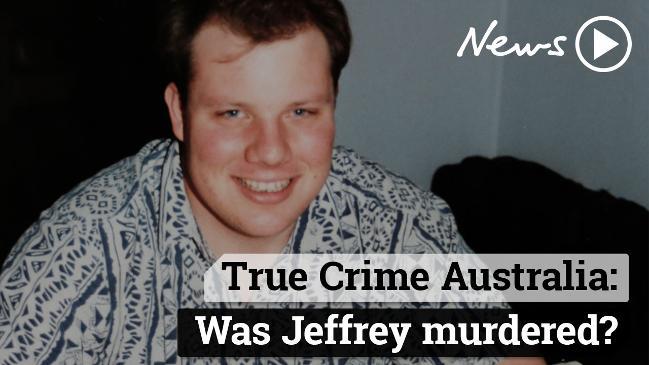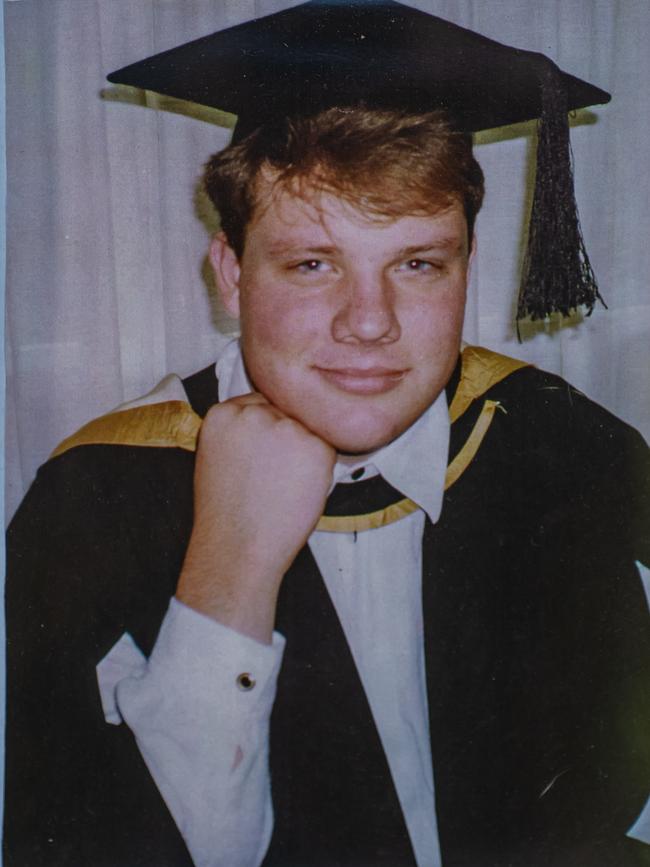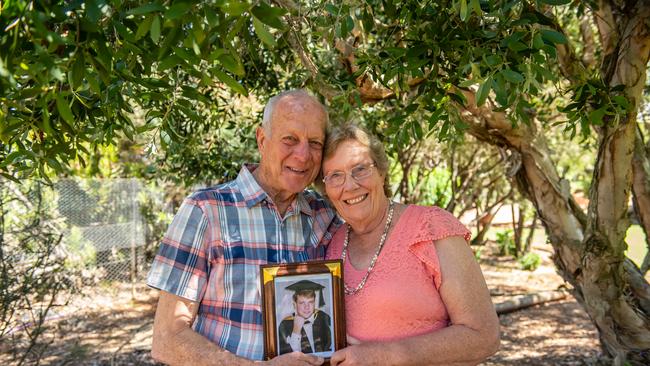Top cop’s ‘embarrassing’ admission over scientist’s mysterious death
The lead detective in the investigation of a young scientist who died of a fatal gunshot wound south of Brisbane has spoken at an inquest into the tragedy.

Police & Courts
Don't miss out on the headlines from Police & Courts. Followed categories will be added to My News.
The lead detective in the investigation of Jeffrey Brooks’ death says he still believes the young scientist was most likely killed in a tragic firearm accident.
But retired police officer Michael Condon said he would also recommend the file be forwarded to cold case investigators if any credible new evidence was raised at an inquest currently being held in the Brisbane Coroners Court.
The inquest before Coroner Donald MacKenzie is probing the circumstances of Jeffrey’s death at a Beenleigh seafood farm in March 1996, and the adequacy of the police investigation and subsequent management of exhibits.
Mr Condon, who served for just shy of 40 years as a police officer and achieved the rank of assistant commissioner before retiring in July this year, led the 1996 investigation into Jeffrey’s death.

Mr Condon on Thursday gave evidence that investigators at the time did the best possible job they could do with the resources they had and that they did not swiftly rule out the possibility of a homicide as has been suggested.
“I welcome this inquest if it gives any new info that will give the family some answers as to the loss of their loved one I’m right behind it,” Mr Condon said.
He said if any new information came to light during the course of the inquest, he would recommend that the police file be forwarded to the cold case unit which had a track record of “outstanding success”.
The court heard police considered three theories after Jeffrey’s body was discovered with a fatal gunshot wound in the cab of a ute on the Beenleigh Crayfish farm where he worked – suicide, accident and murder.

Mr Condon said he believed that suicide was unlikely given Jeffrey’s circumstances and he formed a view that death by accidental discharge of a firearm was the most likely scenario.
He rejected assertions that he “put blinkers on” or had “tunnel” vision and thereby immediately settled on a theory of accident.
Mr Condon conceded that there had been some shortcomings in the investigation, including the failure to seek an interview from a man who had been with a neighbour who reported hearing a gunshot at 3.10pm on the day of the death.
Mr Condon was asked about the existence of a sales receipt from a Franklins supermarket understood to have been given to farm manager Johannes Geiger when he was in town that day around the time Jeffrey allegedly died.
He said he did not recall seeing the docket but recollected being told there was no time or date on it.
“It’s embarrassing I suppose sitting here now that I never took that further,” he said.
The court also heard the shotgun responsible for Jeffrey’s death was destroyed around August 1998 and Mr Condon agreed that in hindsight, the weapon should have been preserved given the open findings made at a previous inquest.
Asked whether he believed the investigation was thorough and adequate, Mr Condon said it was.
“I believe that the information we had at the time, yes as through as it could have been,” he said.

Mr Condon agreed there had been tension between himself and Jeffrey’s father Lawrence Brooks over their conflicting opinions on whether the death was an accident or murder but said he had “definitely listened” to his concerns.
“Mere suspicion is not evidence and theories, hypotheticals are all good but at the end of the day we need credible, reliable, admissible evidence to take somebody to court,” Mr Condon said.
The inquest continues.


